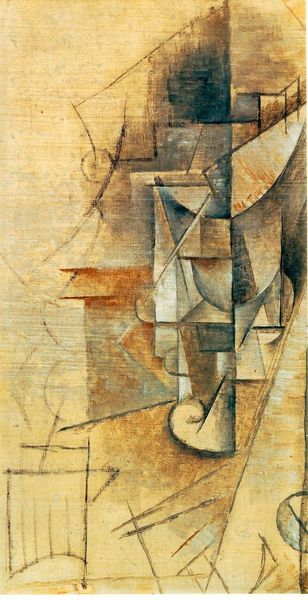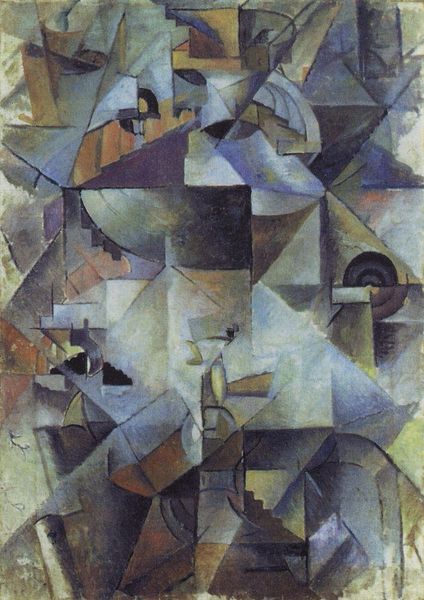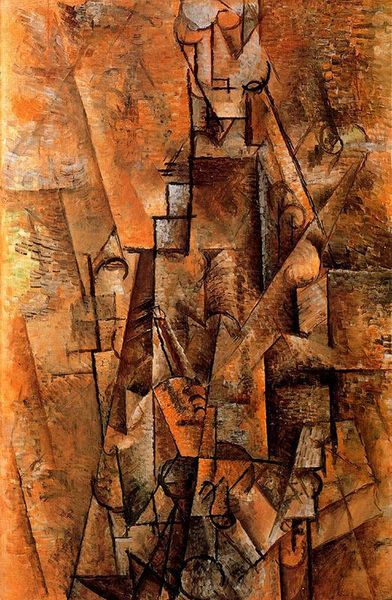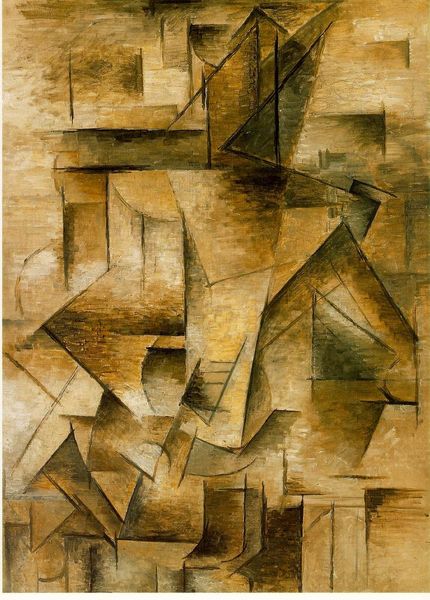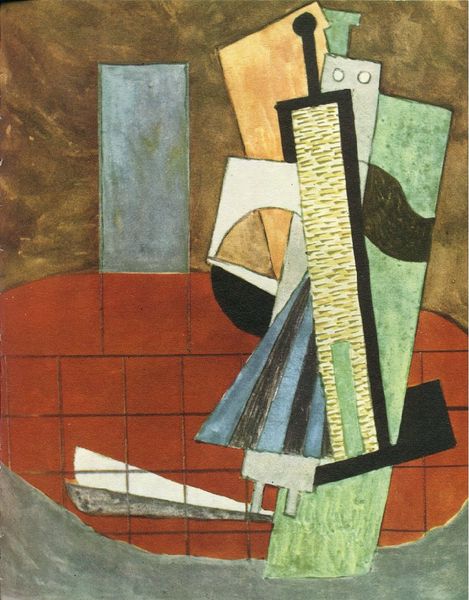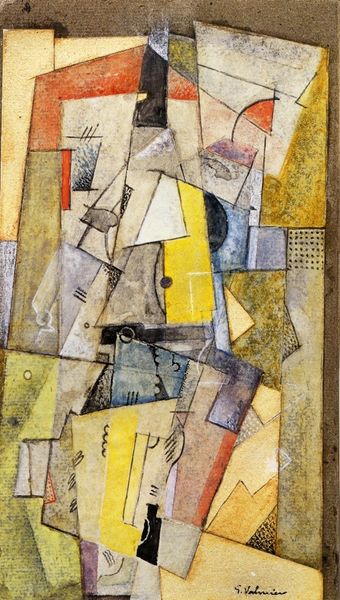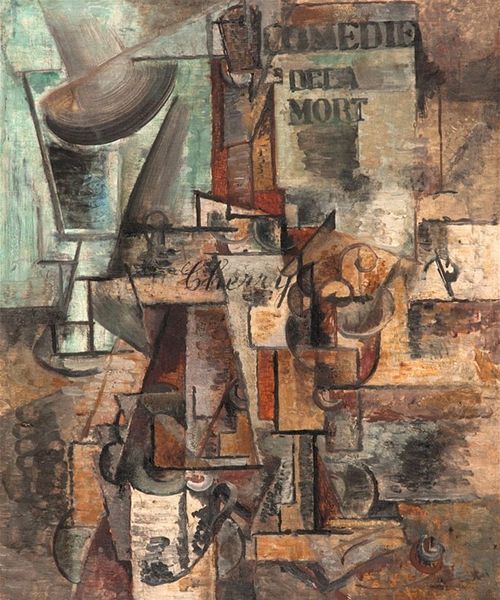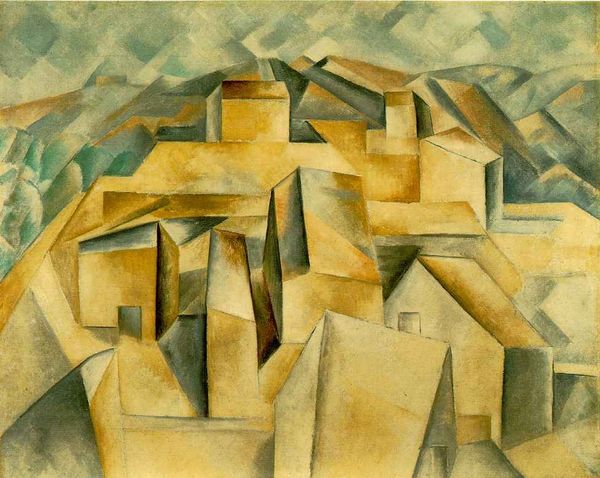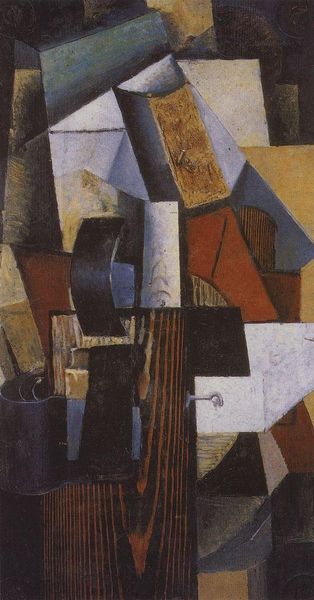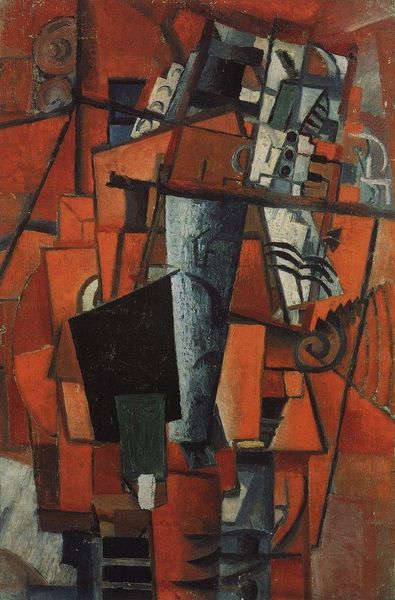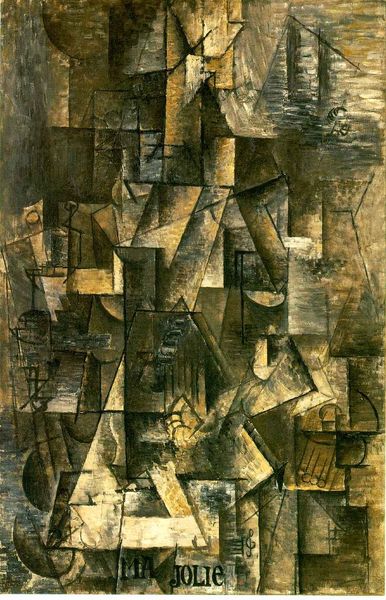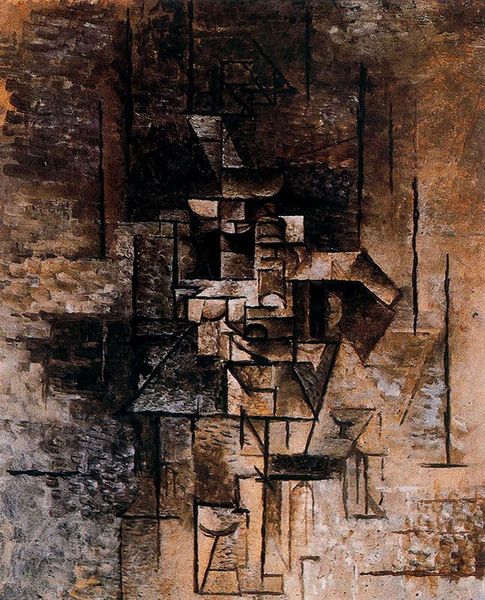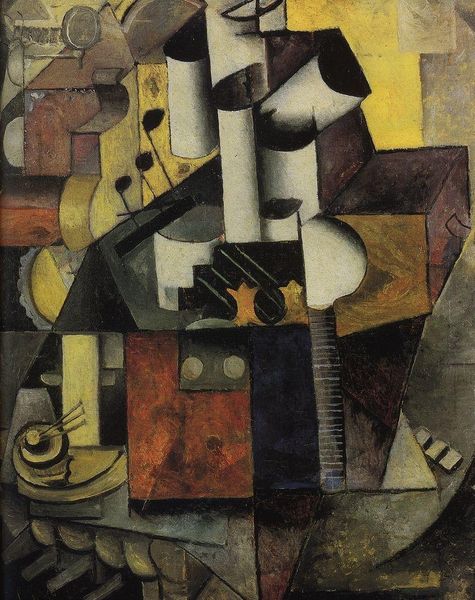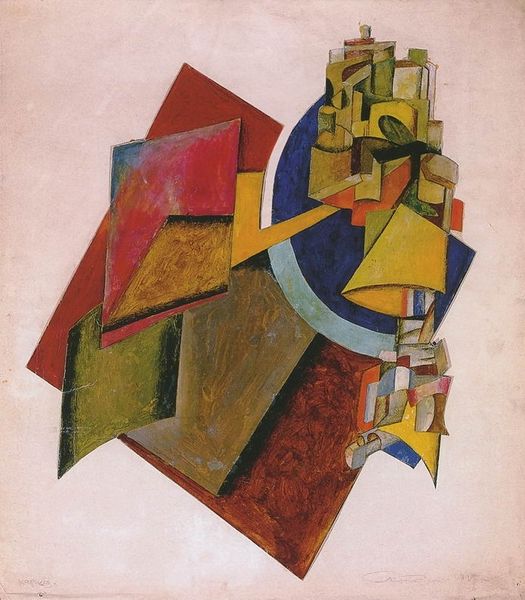
oil-paint
#
portrait
#
cubism
#
abstract painting
#
oil-paint
#
figuration
#
form
#
oil painting
#
male-portraits
#
geometric
#
line
#
mixed medium
#
mixed media
Copyright: Public domain US
This is an oil on canvas painting of a Harlequinesque personage by Pablo Picasso. Made in France at the beginning of the 20th century, the painting employs the visual language of Cubism to create a fragmented and multi-faceted representation of its subject. But what does it mean to depict a Harlequin in this way? In traditional Commedia dell'arte, Harlequin is a comedic servant, known for his wit and agility. Picasso's choice to depict this character through Cubism might be seen as a reflection on the nature of identity and representation in a rapidly changing world. The fractured forms and multiple perspectives challenge the viewer to piece together a coherent image, mirroring the way individuals construct their own identities from various experiences and influences. Art historians often consult archival materials, letters, and cultural ephemera to reconstruct the social context in which an artwork was created. Such research helps us to understand the complex interplay between art, society, and the institutions that shape our understanding of both.
Comments
No comments
Be the first to comment and join the conversation on the ultimate creative platform.
